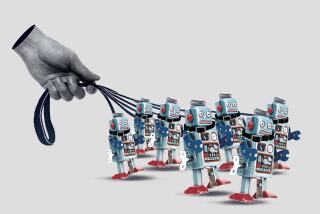Firms find progress at China sites
Walt Disney Co. and McDonald’s Corp., whose supply chain has drawn criticism, quietly released a long-promised report on a pilot project to improve labor conditions in China.
The project, involving 10 factories in southern China that make products for McDonald’s restaurants and Disney licensees, tested a new approach for addressing such chronic problems as substandard wages, excessive work hours and few days off.
The May 7 report, posted on Disney’s website without a formal announcement from the company, found progress at all the factories, which made footwear, toys and other products. The report’s completion was touted by organizations that worked with the companies to improve global working conditions. The report is silent on whether Disney or McDonald’s plans to implement the new approach more broadly.
Oak Brook, Ill.-based McDonald’s issued a statement saying its suppliers know how seriously it takes worker welfare, adding, “We’re committed to continuous progress.” Burbank-based Disney reiterated its commitment to the safety of workers and said it was taking “steps designed to increase the scope of our program.” Neither company would provide executives to discuss the report.
Representatives from several of the seven socially responsible investor groups and nonprofit organizations that participated in the six-year project said they would call on Disney, McDonald’s and other companies to embrace these new methods for improving workplace conditions in China.
“We encourage not just McDonald’s and Disney but any company that picks up this report to think about this,” said Adam M. Kanzer, managing director of Domini Social Investments, which manages $1.5 billion in assets. “Particularly companies in the starting blocks. There are companies just starting to monitor their supply chains. Why not learn from the success of others?”
The initiative, dubbed Project Kaleidoscope, was conceived in 2002 amid growing investor concern about factory conditions in southern China. Both Disney and McDonald’s have strict codes of conduct that set requirements in health and safety, work hours and compensation.
But the report acknowledges that conventional methods of enforcement such as audits provide only a snapshot of factory conditions. They don’t necessarily lead to long-term fixes.
A series of reports since 1999 have highlighted alleged violations of Disney’s code of conduct and Chinese labor laws at more than 30 factories. The reports detail forced overtime, mandatory seven-day workweeks, sub-minimum-wage salaries as low as 16 1/2 cents an hour and cramped factory dormitories.
Project Kaleidoscope sought to get laborers and supervisors working together to find and fix problems and prevent recurrences, instead of awaiting the verdict of auditors. The factories ranged in size from 450 to 17,000 employees.
The project included training for factory owners and managers to show them how to collect and analyze data and make fixes, as well as factory-based workshops so that supervisors would be receptive to input from workers.
Over time, the report says, Project Kaleidoscope yielded results. Audits noted significant declines in problems such as substandard wages and excessive working hours. Workplace health and safety issues continued to surface, but they were significantly fewer than at the start of the project.
The report acknowledged that a “serious worker disturbance” occurred at a factory identified only as PK5, in which workers protested the poor-quality, “unsanitary” food served in the cafeteria, where they were forced to pay for meals they had not eaten.
It is believed to reference the July 2006 melee at a plant that produces Happy Meal toys for McDonald’s. A clash between guards and a worker triggered what Chinese news accounts described as a riot in which 1,000 workers vandalized the Hengli Factory in China’s Guangdong province.
Two independent audits confirmed problems with the quality of the food and the conduct of the security forces during the protests. The report said the factory took corrective measures, including providing health and safety training for food-service workers.
Conrad MacKerron of the As You Sow Foundation, a nonprofit organization that promotes social responsibility, said a handful of U.S. brands had shouldered the burden of improving worker conditions in places such as China. A recent RiskMetrics Group study found that only 1 in 5 large companies had a code to address their suppliers’ compliance with labor standards.
--






